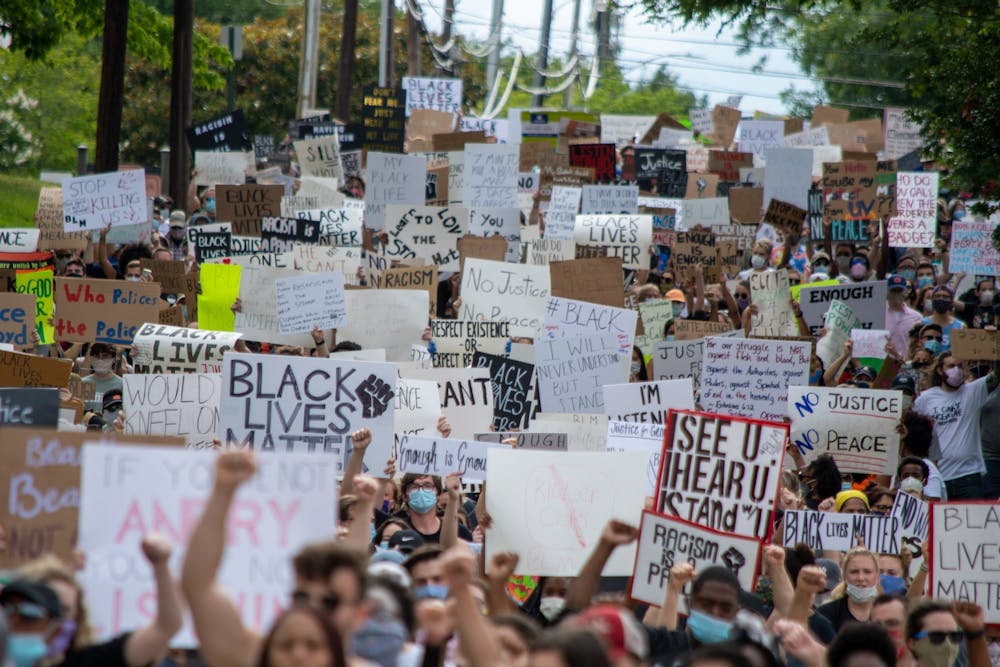Today, 48 states honor the transformative legacy of Martin Luther King Jr. Yet, Alabama and Mississippi will instead celebrate Robert E. Lee, a symbol of the confederacy and its fight to maintain slavery.
Personal impressions of our collective history shape all Americans. It is in our minds when we consider our compatriots, institutions, and places in the world. We remember the ideals of liberty and justice that our forefathers revolted to uphold, the fight Lincoln undertook to extend these ideals toward Americans to whom they had never been offered, and Martin Luther King Jr.’s struggle—more than 100 years later—to finally see those rights faithfully granted to Black Americans.
Unfortunately, some remember this long struggle for justice in a contrary way. Some recall not Lincoln’s fight but Robert E. Lee’s. They think proudly, not of Martin Luther King and the Civil Rights movement, but of Governor George Wallace and his stand in the door of The University of Alabama to stop integration.
Proponents of the Lost Cause Narrative—a historical interpretation of the American Civil War that seeks to glorify the South and its aims—claim Lee as a hero protecting the Southern way of life. While Lee was undeniably a skilled military tactician, our state must not delude itself into thinking this makes him someone worth celebrating. As may be expected from someone fighting for the South's cause, Lee was a white supremacist and an enslaver. Fundamentally, he falls on the wrong side of history morally and in his defeat.
Still, the Lost Cause Narrative finds its home in the halls of the Alabama capital in Montgomery—just across the street from The First White House of the Confederacy. From the capital, this historical impression has led to a holiday's symbolic inversion and issues that run much deeper. Our state is plagued by systemic barriers like gerrymandering to dilute Black voting power, racial economic stratification and the disproportionate mass incarceration of Black citizens.
To engage a primary cause of these problems, I contacted every member of the Alabama State Legislature. Of the responses I got, all but one came from Black representatives. Ron Bolton, a Republican of the 61st House district, was the exception.
“I just don’t get involved in cultural issues like this,” Bolton explained.
Bolton clarified that he contacted me out of duty to respond to all who called on him but that this was not a problem any of his constituents had expressed concern over. His candid explanation and evident commitment to serving his constituents led me to temper my impression of the legislature.
Many of our representatives aim in good faith to improve the lives of their people but have not been attuned to the realities of racial injustice in Alabama. To motivate members of the legislature like Bolton, who genuinely aim to do good work, they must hear from their constituents and face these realities.
The efforts of representatives like Bolton to improve the lives of their people cannot succeed if they do not face the undeniable realities of racial injustice in Alabama.
Consider a few points that should drive this home. Though more than 25% of Alabama’s population is Black, only about 4.5% of Auburn University’s student body is Black. The University of Alabama’s last sorority to integrate did so in 2013. In 2023, a Republican US Supreme Court agreed that Alabama's proposed congressional maps unconstitutionally diluted Black votes. Most importantly, Black Alabamians represent an outsized 42% of those below the poverty line in the state. It should be abundantly and undeniably clear that this state has a problem and a responsibility to strive for justice.
Given these facts and the importance of our sense of history, a "cultural issue" like MLK Day becomes critical. Alabamians and our elected officials cannot continue to ignore our state's systemic challenges.
We must demand good-faith efforts to correct our course, and one such attempt must redress this inappropriately titled date. One of the state representatives I spoke to, Dr. Patrick Sellers of Birmingham’s House District 57, summed up the importance of this inverted symbol.
“It isn’t right that we celebrate an aggressor instead of the great peacemaker—Reverend King,” Sellers said.
I ask all my fellow Alabamians today to remember the great peacemaker's legacy and consider the improvements he would seek were he with us today. Alabamians must aim to carve for ourselves a new reputation in the long arc of history—one rooted in justice and reconciliation, not aggression and hatred.
Reach out to your representatives, outline your concerns, and bring their attention to specific issues like voter suppression and racial economic disparities. Make these issues central to your choices at the ballot box. Justice may appear distant, but it is within the reach of a united effort.
Do you like this story? The Plainsman doesn't accept money from tuition or student fees, and we don't charge a subscription fee. But you can donate to support The Plainsman.





